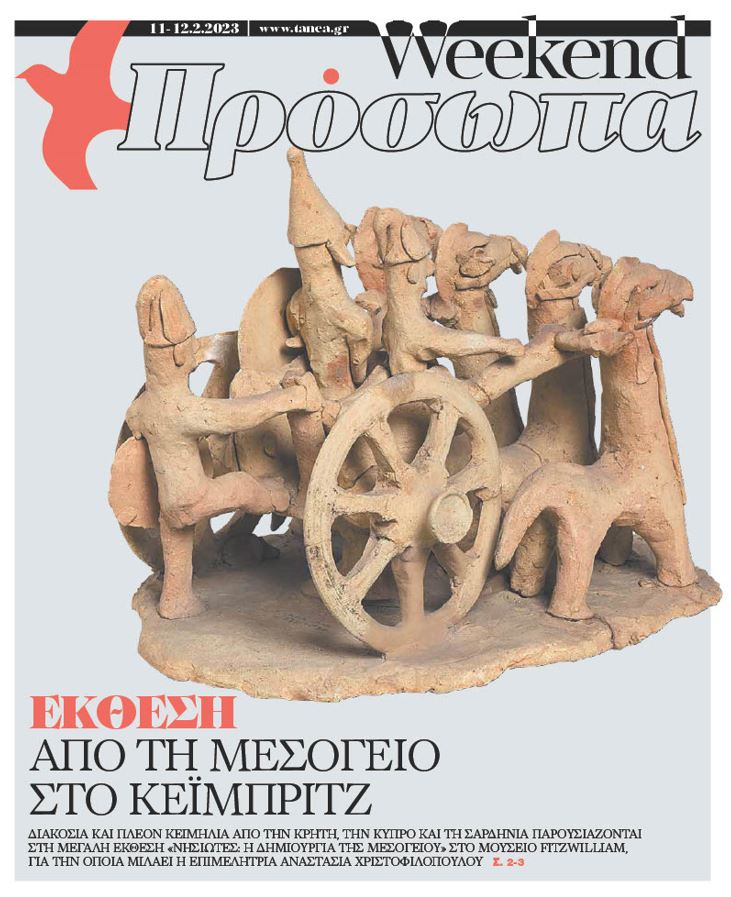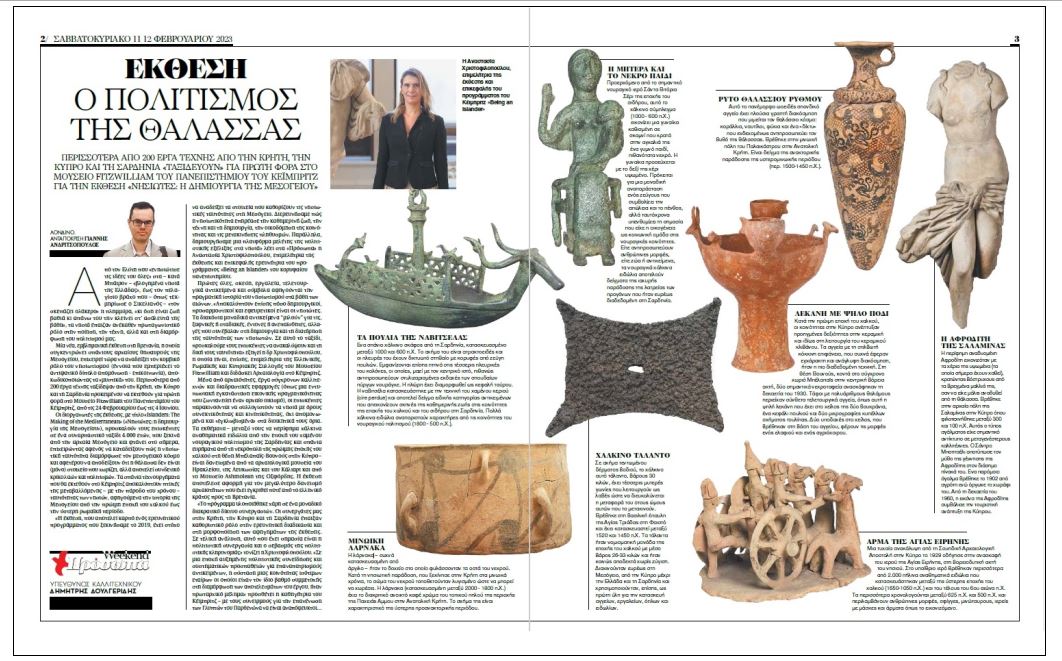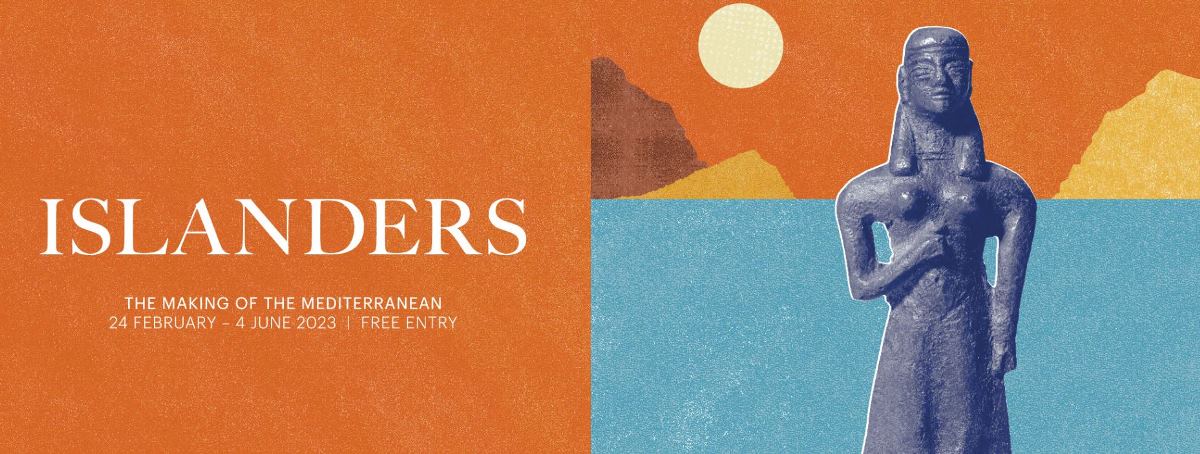Bringing together extraordinary antiquities, Islanders: The Making of the Mediterranean takes visitors on a 4,000-year journey from life in the ancient Mediterranean to today. This new exhibition opens on 24 February 2023 at the Fitzwilliam Museum, Cambridge.
More than 200 objects from three of the largest Mediterranean islands, Cyprus, Crete and Sardinia will be exhibited in the UK for the first time. These objects will help visitors understand the ways these island cultures reflected, and even shaped the larger Mediterranean world with the migrations and movement of peoples. And they reveal how islanders lived every day, their communities, memories, myths, art and creativity.
Highlights include striking bronze votive figurines made around 4,000 years ago by the Nuragic people of Sardinia; exquisite pottery, jewellery and bronze figures from the palaces, sanctuaries and caves of Minoan Crete; and from the sanctuary of Agia Eirini, a selection of clay-modelled humans, deities, sphinxes and horse-drawn chariots that reveal the complexities of Cypriot society in the 6th and 7th century BCE.
The exhibition, curated by Dr Anastasia Christophilopoulou in partnership with the Embassy of Greece to the United Kingdom and the High Commission of Cyprus in the United Kingdom, is part of the 'Being an Islander: Art and Identity of the Large Mediterranean Islands' project, 2019 - 2023.
The exhibition is organised in partnership with the Ministry of Culture and Sports, Greece; the Department of Antiquities, Ministry of Transport, Communications and Works, Cyprus; and the National Archaeological Museum, Cagliari, Sardinia.
Yannis Andritsopoulos, UK correspondent for Ta Nea reported on the exhibition on the 12th of February with an exclusive interview, and wrote: "from Elytis, who "instilled all his ideas" according to Byron, in the "blessed islands of Greece", to the pelagic rock that Sikelianos documented, "is covered by the flood", "and as long as life is deep and above it closes it in its unspoiled depths", the islands have always played a leading role in poetry, art, but also in the formation of our culture. This newc exhibition in Britain brings together rare ancient treasures of the Mediterranean, and attempts to highlight the pivotal role of islandism, decoding its "secrets". The exhibitionat the Fitzwilliam Museum, Cambridge, will be open from 24 February to 04 June 2023.


"The exhibition, which is the result of a research project we launched in 2019, aims to highlight the elements that define island identities in the Mediterranean. We explored how insularity affected everyday life, art and creation, community building and population movements. At the same time, we created a platform for the study of cultural evolution on the islands," Anastasia Christofilopoulou, curator of the exhibition and lead researcher of the "Being an Islander" programme of Cambridge University, explained to Ta Nea.
Raw materials, utensils, tools, ritual objects and symbols tell the true story of islandism in the depths of the centuries.
"They also reveal how creative, adaptive and inventive the islanders are. The two hundred unique objects "speak" about the, sudden or gradual, intense or imperceptible, changes that contributed to the creation and preservation of the identity of the islanders. On this journey, we invite visitors to discover their own identity," explains Dr Christofilopoulou, who is also curator of the Fitzwilliam Museum's Greek, Roman and Cypriot Collection and teaches Archaeology at Cambridge.
To book, visit: https://tickets.museums.cam.ac.uk/overview/6080
